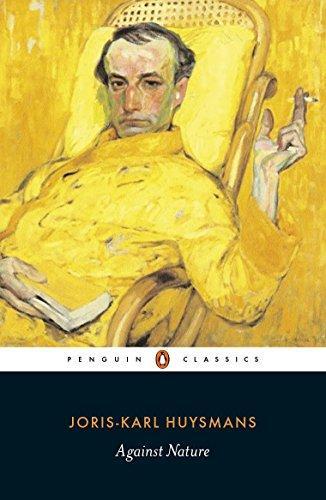ilk@bookrastinating.com reviewed Against Nature by Joris-Karl Huysmans
A hymn to listlessness
4 stars
This novel has no plot, virtually no dialogue and centers on a single character, Des Esseintes, an ailing French aristocrat who has exiled himself to a villa outside Paris in pursuit of a life of decadent fixation on his favourite possessions.
Whether it's the classics of antiquity, the merits of French Catholic authors or the supremacy of plainsong in sacred music, Esseintes' musings go on page after page. You needn't be familiar with the subject matter to get something out of the novel, but you must be curious by nature, otherwise it will quickly infuriate you. The labor of his musings is the point - the book revels in a kind of excruciating indulgence, portraying a listless mind which has made for itself a labyrinth from objets d'art. Three pages might be spent on the changes in Latin vernacular across a range of writers from classical antiquity (much of the …
This novel has no plot, virtually no dialogue and centers on a single character, Des Esseintes, an ailing French aristocrat who has exiled himself to a villa outside Paris in pursuit of a life of decadent fixation on his favourite possessions.
Whether it's the classics of antiquity, the merits of French Catholic authors or the supremacy of plainsong in sacred music, Esseintes' musings go on page after page. You needn't be familiar with the subject matter to get something out of the novel, but you must be curious by nature, otherwise it will quickly infuriate you. The labor of his musings is the point - the book revels in a kind of excruciating indulgence, portraying a listless mind which has made for itself a labyrinth from objets d'art. Three pages might be spent on the changes in Latin vernacular across a range of writers from classical antiquity (much of the book feels like heading down a Wikipedia rabbithole where all the articles are highly opinionated). To borrow from Kipling, Esseintes is someone who has made thoughts his aim.
So why read this at all? Because it's fiercely strange, incredibly silly its own way, and Huysman's prose is beautiful and routinely surprising. The Penguin translation comes packed with supplements including notes, intro, a retrospective essay on the novel by Huysmans, and contemporary receptions from Zola et al.

